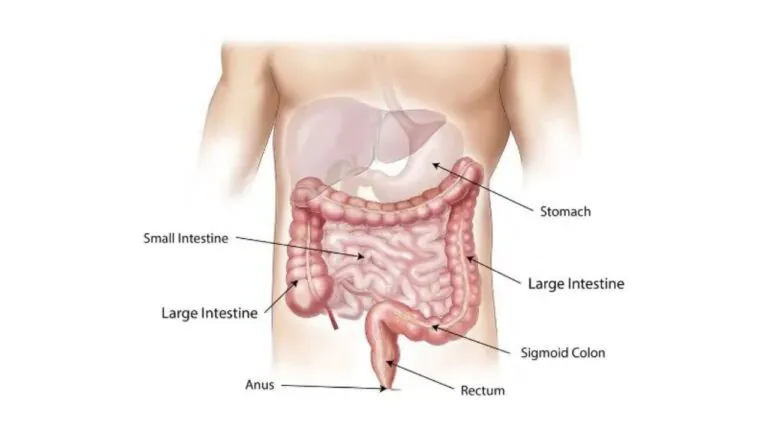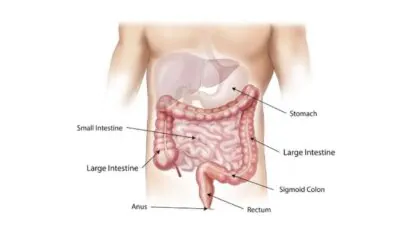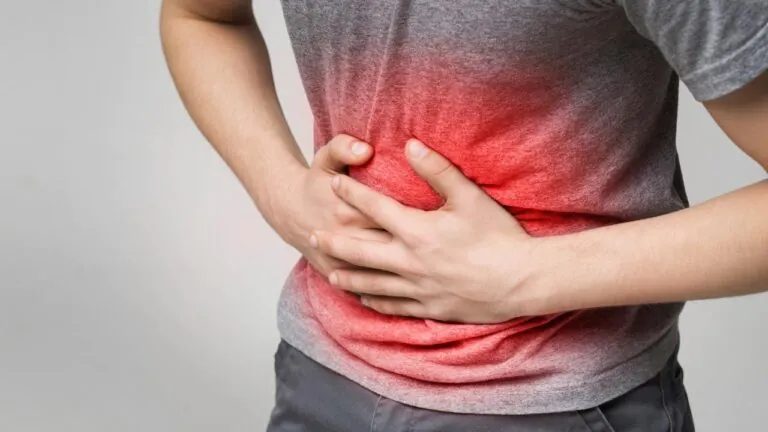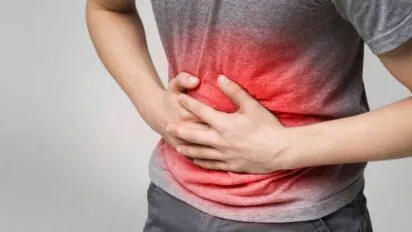All content on this website is for informational purposes only, and is not intended to be a substitute for professional medical advice, diagnosis or treatment. If you have questions about your medical condition or treatment, always seek advice of your physician or other qualified healthcare professional.
Colorectal Cancer
Also known as bowel cancer, or colon cancer, the colorectal cancer (CRC) refers to cancer of either the colon (large intestine) or the rectum, which are the lower parts of the gastrointestinal tract (1, 2).
The colon is part of the body’s digestive system. The digestive system takes in nutrients (vitamins, minerals, carbohydrates, fats, proteins, and water) from foods and helps pass waste material out of the body (3). The colon contains many types of bacteria, which have potentially important functions. The colon is lined with mucous membranes and contains cells that form part of the body’s immune defence (2).
Colon cancer forms in the tissues of the colon (3). Bowel cancer starts when cells in the bowel lining are damaged and grow uncontrollably, forming a tumour (2).
Colorectal cancer is a common in both men and women (1). Most cases affect people over 50 years old (5). It is rare below 40 years of age. However, there has been a significant increase in colorectal cancer incidence among younger adults, especially in developed countries. The rise in early onset disease may be related to changes in diet and resultant effects on gut microbiome and inflammation and to environmental factors such as use of microplastics (4).
0rd
Most common cancer in the developed world (4)
Symptoms are not specific and occur frequently in benign colorectal conditions. Signs of colorectal cancer include changes in bowel habits, abdominal pain, and sometimes blood in the stool. (1) These and other signs and symptoms may be caused by colon cancer or by other conditions. Check with your doctor if you have:
- blood in the stool
- a change in bowel habits (diarrhea, constipation, feeling that the bowel does not empty completely, etc)
- abdominal pain or discomfort (frequent gas pains, bloating, fullness, or cramps)
- unexplained weight loss that is sudden and losing weight without trying
- fatigue (feeling constantly tired and lacking energy, even with enough rest)
- vomiting
- iron deficiency anaemia due to chronic bleeding, causing fatigue, weakness and paleness.


Some risk factors for colorectal cancer, like smoking, can be changed. However, risk factors also include things you cannot change, like your genetics, getting older, and your family history.
Risk factors for colorectal cancer include:
- having a first-degree relative (parent, sibling, or child) with a history of colon or rectal cancer
- having a personal history of colon, rectal, ovarian cancer or adenomas (colorectal polyps )
- having inherited changes in certain genes that increase the risk of familial adenomatous polyposis (FAP) or Lynch syndrome (hereditary nonpolyposis colorectal cancer)having a personal history of chronic ulcerative colitis or Crohn disease for 8 years or more
- having three or more alcoholic drinks per day
- smoking cigarettes
- having Obesity, high calorie intake, and physical inactivity are probably synergistic risk factors for the development of colorectal cancer.


Having one or more of these risk factors does not mean that you will get colorectal cancer. Many people with risk factors never develop colorectal cancer, while others with no known risk factors do. Talk with your doctor if you think you might be at increased risk.
How to prevent health burden?
The greatest gift you can give yourself and your loved ones is a healthy you. Take care of your body and focus on living the highest quality of life you can through your daily choices.
At Acino, we have longstanding knowledge which we want to share with you. Explore our materials to raise your awareness, and make decisions to stay healthy and improve your quality of life.
Direct visualization looks at the colon and rectum using a scope and camera (colonoscopy or flexible sigmoidoscopy) or by computed tomography (CT) scan (CT colonography, also called virtual colonoscopy). These tests require bowel preparation using laxatives to empty the colon and rectum beforehand.
There are pros and cons to each of these tests, for specific information concerning your personal medical condition consult your physician.
Treatments for colorectal cancer are based on the type and progression of the cancer and the person’s medical history.
Treatments include:
- surgery
- radiotherapy (radiation)
- chemotherapy
- targeted therapy
- immunotherapy
Early detection of colorectal cancer can lead to better treatments and outcomes. Screening can reduce both the incidence and mortality of colorectal cancer through early detection and removal of precancerous growths. Treatments are more likely to cure the disease in the early stages (5). Clinical trials show that screening adults aged 50 to 75 years decreases colorectal cancer deaths. Computer simulation studies suggest that starting screening at age 45 years may help some people live longer than if they started screening at age 50 years (1).
Regular screening for colorectal cancer (secondary prevention) is the best way to catch the disease early. People who suspect they may have colorectal cancer should speak to their healthcare provider right away (5).
Lifestyle changes to help prevent colorectal cancer include:
- eating a healthy diet rich in fruits and vegetables
- not smoking tobacco
- keeping an active lifestyle
- limiting alcohol consumption
- avoiding exposure to environmental risk factors
Lifestyle changes and regular screening can help prevent colorectal cancer.
References
- Jin J. Screening for Colorectal Cancer. 2021;325(19):2026. doi:10.1001/jama.2021.6557
- Bowel cancer | What causes cancer? | World Cancer Research Fund. (2025, May 28). World Cancer Research Fund. https://www.wcrf.org/preventing-cancer/cancer-types/bowel-cancer/ accessed 27.08.2025
- National Cancer Institute. Colon Cancer Treatment–Patient Version. https://www.cancer.gov/types/colorectal/patient/colon-treatment-pdq accessed 27.08.2025
- Colorectal cancer – Symptoms, diagnosis and treatment | BMJ Best Practice. https://bestpractice.bmj.com/topics/en-gb/258?utm_source=adestra&utm_medium=email&utm_campaign=usage&utm_content=bp_monthly_email&utm_id=BMJ109&nbd_source=adestra&nbd=f4242b5951072e58f255d15951948f835ca8fab7d83116f627b5197324f34604&uaa_id=f4242b5951072e58f255d15951948f835ca8fab7d83116f627b5197324f34604&utm_campaign=BP%20institutional%20end%20users%20-%20Aug%202025&utm_medium=email&utm_source=adestra accessed 27.08.2025
- World Health Organization: WHO & World Health Organization: WHO. (2023, July 11). Colorectal cancer. https://www.who.int/news-room/fact-sheets/detail/colorectal-cancer accessed 27.08.2025
Last updated: 27 August 2025
GLO-GASTRO-08/2025-04